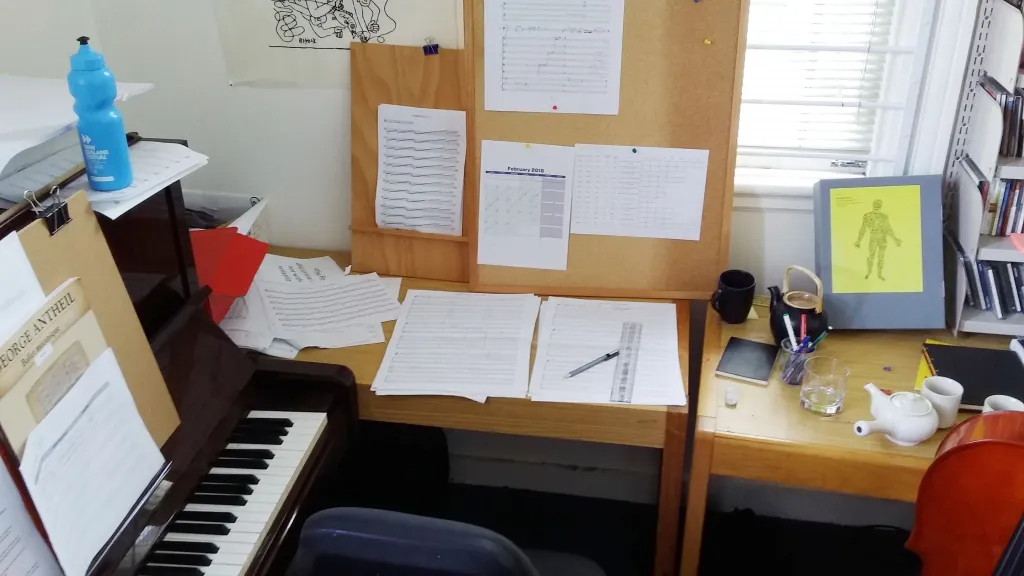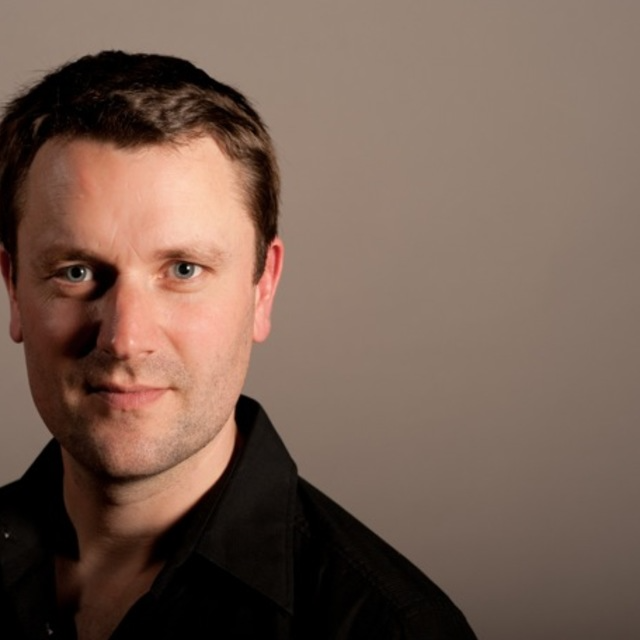What does a typical composing day look like for you?
Because I am a lecturer, and very much tied to the academic calendar and the needs of my students, my day is by definition free-form. I manage to carve out chunks of time in the non-teaching times of the calendar, but it's tricky during term time to get much time.
Please describe the space where you compose your music. What makes this space special and why have you chosen it?
I compose in two places — one in my office, and the other at home. The important thing is that they're relatively quiet, and that I can spread out all my stuff around me for quick grabbing. Weirdly, I have also found long layovers in airports to be quite creative times.
 Michael's workspace
Michael's workspace
What equipment (including software) do you have in your space? Is there anything special, interesting or quirky about it?
I start with a retractable pencil (no sharpening needed!), a good eraser, some paper with pre-printed manuscript lines and a ruler. A good table with plenty of space is important, and a pinboard nearby to pin my ideas/sketches/plans on. I am also surrounded by a collection of cheap instruments that I have acquired over the years, which I keep out of their cases (tut, tut) to make it easier to grab when the inspiration hits.
Please describe your typical composing process. Does it change with each piece?
It changes a bit with each piece, but I like to try and pre-plan some elements of the piece to reduce the amount of decision-making during the actual notation stage. With large orchestral works, I have experimented recently with composing forms of 'short score' first, leaving a second 'orchestration' phase to come afterwards.
SOUNZ blog is designed for expressive discussion and debate amongst the arts and broader community. This is intended to be a safe space so please remember to keep comments respectful and avoid personal attacks, criticisms of specific organisations and defamatory language. Comments are moderated to ensure that they comply with SOUNZ’s Community guidelines.
